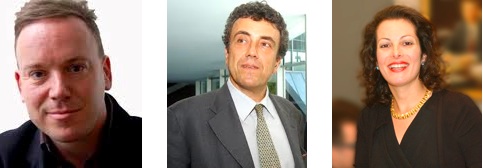
Last week I had the good fortune of meeting three public servants of three different countries, each with a very high intellectual profile. Each of them is a point of reference in his or her field.
On Wednesday I was with Geoff Mulgan, British, founder of Demos, CEO at the Young Foundation, appointed to lead NESTA. He comes from a communication background. In the UK he is a star, having served in top posts under the Blair administration; and it seems he is about to becom one in Europe, too, because his voice is heard with attention in Bruxelles on the issue of social innovation, just as the EU is making investment decisions in this field. He is committed to designing Prime Minister Cameron’s Big Society – a controversial, yet carefully studied model. That’s not surprising, because it is the only one that promises a solution for defending the European welfare state in a globalized, finance-dominated world..
That same evening I had dinner with Fabrizio Barca, Italian, director general of the Ministry of the Economy and advisor to the European Commission for the reform of regional policy. He comes from an economics background. He got to be in government coming from Banca d’Italia, together with Carlo Azeglio Ciampi (Ciampi is possibly the best statesman in the history of Italy after unity: a partisan turned central banker turned Prime Minister and then Minister of Treasury, who then went on to be one of the most popular Presidents ever). Ciampi and Barca shared an exceptional experience of institution building, recruiting a group of technicians with international experience to work on the issue of development of lagging Mezzogiorno. The result was the National Strategic Framework, the smartest, noblest policy document I have ever read. Fabrizio has an incredibly wide strategic outlook in which he subsumes everything from scientific papers to policy documents and his own conversations with civil society leaders, and is ultrafast (he answers his mail in minutes, and his colleagues say it is almost impossible to stay ahead of him). He is a leading authority on the issue of economic development.
I spent Thursday with Beth Noveck, American, founder of Peer to Patent, former deputy CTO at the White House, about to start a new appointment with the British government on OpenGov. She comes from a law background. Of the three, Beth is the one I feel I know best (we have been in conversation for a year, and she helped me with my book), and the one I am closest to in terms of interests. We both care about the collaborations between citizens and public authorities, and she is a world class expert in this field. Unlike the other two, she is above all an academic.
My take home from meeting these people is the usual one, always worth repeating: I have still much, much, much to learn. And learn I will.
